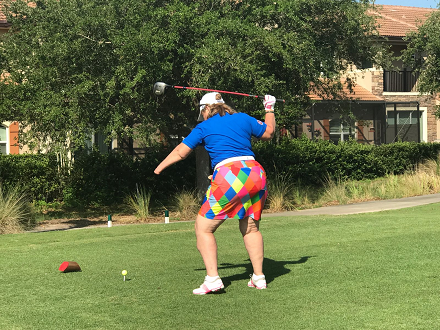
The United States Disabled Golf Association (USDGA) provides golfers with disabilities an opportunity to showcase their talents in a championship style event. The organization is based in Clinton, North Carolina. USDGA produces and executes the United States Disabled Open, which will be held this year at the Longbow Golf Club in Phoenix, Arizona. In previous years, it has been held at Eagle Creek (Orlando, Florida) and Powhatan County’s Independence Golf Club (Richmond, Virginia).
Golfers with different levels of challenges are eligible to participate in the event. Individuals who have played include those who have had amputations, visual impairments, cerebral palsy, physically wounded or disabled veterans, muscular dystrophy, individuals of short stature (dwarfism), Special Olympians and individuals who have suffered a stroke, as well as others.

Sports Destination Management: The USDGA has given some great opportunities to some really inspiring athletes. How long has it been around?
Jason Faircloth: Three years now. It’s growing!

Faircloth: The first year, we had 48 golfers from eight countries. Last year, we had 74 golfers from eight countries. This year, we’re looking to have even more.
SDM: Is awareness growing about golfers with disabilities?
Faircloth: Yes – there’s a lot more awareness in the past few years than there ever has been.
SDM: Is it just the one tournament a year?
Faircloth: We had one of the largest adaptive golf Championships in the world last year. We feel if we add more events, the participation and quality will go down and that's something we don't want to see happen. It's also not good for destinations.
 SDM: You’re at Longbow this year; what do you look for in a tournament site?
SDM: You’re at Longbow this year; what do you look for in a tournament site?
Faircloth: We need something close to the airport so that people have easy access. If people have to travel an hour and a half to get from the airport to the tournament site, they probably won’t come. The golfers do things just like other events in the area: They go out, they tour the area, they love to eat, drink, explore, and yes, spend money for four to five days that they are there.
SDM: What drew you to Longbow?
Faircloth: We get a lot of support from them and it’s a good course. Longbow also has held some major events before. In 2018, we went to Independence Golf Club and they are hosting the US MID AM this year so that's the standard that has been set already.
 SDM: Are you currently looking for other sites for future years?
SDM: Are you currently looking for other sites for future years?
Faircloth: Right now, we’re trying to obtain our 2021 and 2022 venues. We look for a course that can handle an international championship; it really does need to be a championship caliber course. We also like to find places with flat courses and with bunkers that are accessible by cart. And of course, the hotels we’re using need to be close to the course. We also look for support within the area. We treat the championship like a PGA event, so we require local support, volunteers and media to be there during the four days. With our story, that should be easy. With this being said this event doesn't required any more then what other events required.
SDM: If destinations want to express interest in hosting how should they contact you?
Faircloth: They can e-mail me at jason@usdga.net or call me at 910-214-5983.
SDM: Does everyone compete against everyone else in the event?
 Faircloth: There’s a whole range of challenges people have; we have a list of impairments on our website. That's what set the event off from other events. Everyone plays against everyone. Different impairments play against other impairments and only the golf game separate the different categories/flights
Faircloth: There’s a whole range of challenges people have; we have a list of impairments on our website. That's what set the event off from other events. Everyone plays against everyone. Different impairments play against other impairments and only the golf game separate the different categories/flights
SDM: It’s definitely inspiring to see the pictures from your events. One thing that is a challenge to many events that need to recruit special populations is the problem of finding participants. How do you go about it?
Faircloth: I’d say our base is really good at getting the word out; they’ve played it and liked it, so they tell their friends. There’s a lot of word of mouth, but also a lot of information that goes out through social media – Facebook, Twitter, that sort of thing.
SDM: What do you think people don’t understand about the sport of golf when it comes to people with physical challenges?
Faircloth: I don’t think they understand how popular it really is and how much people like playing each other. People really enjoy their golf. Having a challenge doesn’t change that. The golf objectives really don't change. It's how well you get the clubhead on the back of the ball. Some just do it better than others and some have obstacles preventing them from doing it better.

 www.usdga.net
www.usdga.net